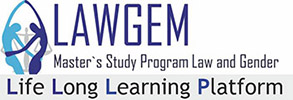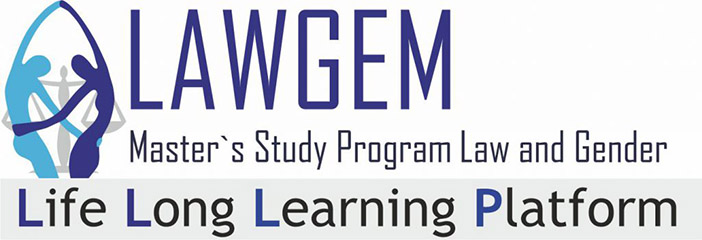Faculty of Law University of Belgrade in the cooperation with the OSCE Mission to Serbia organized the Spring School/Pilot Master – Law and Gender. This Spring School was based on the project LAWGEM and served as a kind of the pilot practicing of the future master`s study program Law and Gender. It covered all courses contained in this master`s study program curriculum, and the reading materials consisted to a great extent of the books published within the LAWGEM project. The School was organized in a hybrid form – in person at the Faculty of Law University of Belgrade and online, with 69 participants (students of undergraduate, master and PhD level), both from Serbia and other countries around the world (Albania, Belarus, Bosnia and Herzegovina, Brazil, China, Croatia, France, Germany, India, Iran, Italy, Montenegro, Russia and Vietnam). It is certain that participants of this School have gained valuable knowledge which will help them on their academic path and in their professional careers. On the other hand, the Spring School represented an excellent preparation of lectures and pedagogic experiences of the scholars from the University of Belgrade Faculty of Law for the future conducting the master’s study program Law and Gender.
Public Law and Gender Equality as an optional course consisted of three lectures focusing on the Concept of Gender Balanced Public Law, the Representation of Women in Public and Political Life, and The Role of the European Ombudsman in Strengthening Gender Equality within the EU. It was held by Full Professor Dr. Marko Davinić, and Full Professor Dr. Tanasije Marinković. Professor Dr. Marinković explained the development of modern public law through three stages, namely, the birth of public law, gender-neutral public law, and gender-balanced public law. In the first stage, different treatment between sexes was justified, while in the second, was neutral, treating both sexes as the same. The third stage acknowledged differences between sexes without disadvantaging them., and also included the prohibition of sexist speech, general obligations of prevention of violence against women, and actions to combat stereotypes within society. Professor Dr. Davinić explained obstacles to women’s political representation, the influence of traditional attitudes, and international norms and standards in the political participation of women. Professor Dr. Davinić also explained three types of quotas, and participants had the opportunity to discuss different solutions and possible advantages and disadvantages of quotas in political life. In the third part of this course, Professor Dr. Davinić introduced the institution of the EU Ombudsman and represented interesting cases related to pregnancy, part-time work, and parental leave. After fruitful discussions between participants and professors, it was concluded that women’s representation in political life is important because women are more likely to implement policies related to combating gender-based violence and focusing on spheres of social welfare, education, health, etc. Also, the role of the EU Ombudsman is necessary because it raises important questions and improves the practice of EU institutions regarding gender equality.
Public Law and Gender Equality: Concept of Gender Balanced Public Law

